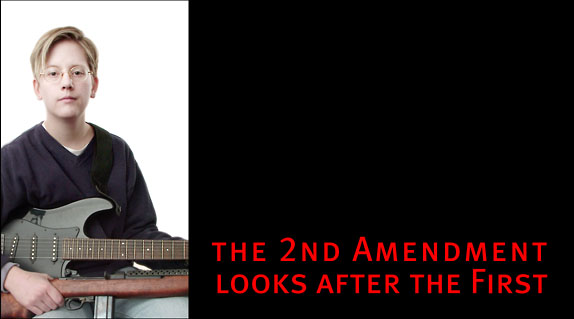Privacy a concern for many licensees
After a number of thinly-veiled swipes by several Gannett-owned newspapers that appeared an attempt to lessen the impact of the success of OhioCCW in its first year, the Chillicothe Gazette has published a story examining an issue that has had a negative effect on application rates.
From the story:
-
For the people who fought for Ohio's concealed weapons law, the fight isn't over.
As the law currently stands, licensees' names and county of residence are available to working journalists, and that leaves a sour taste in some people's mouths.
Rep. Jim Aslanides, R-Coshocton, sponsored the bill that would become the concealed weapons law, but he's expected to propose some revisions this summer.
"Our office is getting a lot of calls," he said. "There are many people who are not getting their applications and not applying because they don't want their names printed in the paper for no reason. That's the biggest complaint we're getting, that newspapers are abusing the privilege, the right or privilege to print names."
Newspapers in northeast Ohio commonly print the names of people granted licenses, Aslanides said.
But Frank Deaner, executive director of the Ohio Newspaper Association, said the law is too restrictive.
"As far as we're concerned, permits for carrying concealed weapons should be public documents just like all other permit applications in other areas, and we're encouraging the legislators to keep that access open to the general public," Deaner said.
Gov. Bob Taft accepted an 11th hour compromise, Deaner said, that brought access to the records from open to the general public to open to the media only.
Gerard Valentino, central Ohio coordinator for the group Ohioans for Concealed Carry, said if a license-holder commits a crime, their status as a licensee should be available to the media.
But there's no need to gather the names of licensees, he said. With the criteria required to qualify for the license, one can have a "reasonable assumption" the licensee will obey the law.
His group issued a statement in concert with the one-year anniversary comparing the public disclosure of licensees to the restrictions put on sex offenders.
"There's no public safety issue here," he said.
This story marks the first time a newspaper has bothered more than a scant mention of the many issues behind the push to close the Media Access Loophole - issues that are typically ignored or impugned by the likes of the ONA’s Frank Deaner.
Click on the "Read More..." link below for more.
When the media first began demanding access to license-holders private information, they claimed it was necessary to check up on sheriffs to ensure they were issuing licenses properly, and to keep tabs on CHL-holders to see if they were breaking the law. The media is not using its access privilege for the purposes claimed. When a driver commits a crime with a motor vehicle, and when that driver did not have a license to operate the vehicle, the media dutifully reports that fact. But rare indeed are examples where the media reports on a criminals’ lack of a CHL.
- "What many people fear is they fear their family, their person and their property as a target of crime if they have their name printed," Aslanides said. "It's a health and safety issue when newspapers abuse their ability to print names."
But Deaner said it would be unconstitutional to stipulate how the information received from the sheriff's offices is used.
"Since the law allows journalists to have access, journalists therefore are allowed to use that information however they choose, whether it be to print it or whether it be to merely use it," he said. "To change that provision in any way steps over the line to censorship. If something is available to the media, then you can't have the government telling the media what they may or may not do with that information. That violates the First Amendment and is censorship."
When Frank Deaner falls back to a First Amendment defense is when it is clear he has lost the original argument, which was based on an anti-gun viewpoint.
Deaner may be correct that it is improper to tell the media what to do with this information once they have obtained it. As such, the only acceptable solution is to remove the provision which allows the media access in the first place.
Related Story:
The Wicked Witch of the Ohio Media is Melting
- 1026 reads

 align="center">
align="center">